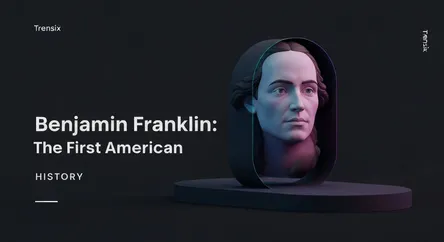History
Benjamin Franklin: The First American

Explore the life of Benjamin Franklin, a leading figure in American history known for his wit, inventions, and role as a Founding Father.
What is it?
Benjamin Franklin (1706-1790) was one of the most influential figures in American history, often called "The First American" for his early and tireless campaigning for colonial unity. A true polymath, he was a leading author, printer, political theorist, politician, postmaster, scientist, inventor, and diplomat. Franklin's civic contributions were vast; he founded Philadelphia's first fire department, the first subscription library, and the University of Pennsylvania. His scientific pursuits, most famously his experiments with electricity, earned him international renown. He also invented the lightning rod, bifocals, and the Franklin stove.
Why is it trending?
Benjamin Franklin remains a perennially trending topic in history due to his foundational role in the creation of the United States. He is the only person to have signed all three of the documents that created the nation: the Declaration of Independence, the Treaty of Paris, and the U.S. Constitution. His wisdom, captured in publications like Poor Richard's Almanack, continues to be quoted. As a key diplomat, his efforts in securing a French alliance during the Revolutionary War were crucial to American victory. His life story, from a humble Boston upbringing to global fame, represents the quintessential American dream.
How does it affect people?
Benjamin Franklin's legacy profoundly affects modern life. His belief in self-improvement and civic virtue continues to inspire. Institutions he established, like libraries and universities, remain pillars of communities today. His scientific discoveries laid the groundwork for our modern understanding of electricity. As a statesman, his contributions to the Declaration of Independence and the Constitution helped shape a government and a national identity centered on liberty. His later life was also marked by his presidency of an abolitionist society, highlighting his evolving and influential stance against slavery.